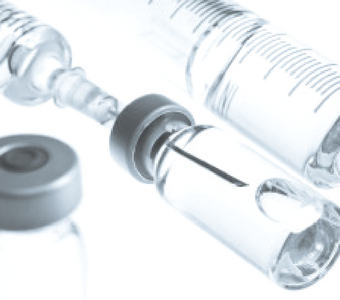On Monday after the close, Achillion Pharmaceuticals (ACHN) revealed that the FDA has placed a partial clinical hold on the development of lead candidate sovaprevir following the discovery of elevated liver enzymes in some patients exposed to a potential combination therapy for patients diagnosed with both HCV and HIV. The Phase I drug-drug interaction (DDI) study evaluated the effects of concomitant administration of sovaprevir with ritonavir-boosted atazanavir in healthy subjects. These concerns further spotlight the difficulties that HCV developers have faced in the last year. Recall that just two weeks ago, Idenix (IDIX) took a sharp dive following an announcement that the FDA needs to see more preclinical safety data for IDX20963, Idenix’s lead uridine nucleotide prodrug candidate.
The Phase I DDI utilizing sovaprevir in combination with Bristol Myers Squibbs’ (BMS) Reyataz (atazanavir) showed elevated ALT levels in some patients (indicative of liver toxicity). 5 out of a total of 31 patients had Grade 3 or 4 ALT elevations (3 Grade 3’s and 2 Grade 4‘s), and substantially higher plasma levels of both sovaprevir and Reyataz. No other clinical events were noted in the combination of sovaprevir and Reyataz. While we see this as a concerning event in terms of a combination in the Reyataz-receptive HIV/HCV population, it appears that the safety issue may be more of a competitive issue than a problem for Achillion’s entire development program for a few reasons:
1. Other protease inhibitors for HCV have also had issues with HIV protease inhibitors, and this has not prevented them from securing FDA approval in the past: Merck’s (MRK) Victrelis and Johnson and Johnson’s (JNJ) simeprevir both demonstrated similar interactions.
2. Most importantly, the ongoing Phase II -007 trial of sovaprevir and ACH-3102 + ribavirin has not been halted. ACHN reaffirmed that rapid virologic response (RVR) data will be released in the third quarter and that sustained viral response (SVR) data will be released in the fourth quarter. 6-week data that is currently available to ACHN has not indicated any safety issues. CMO David Apelian noted in an evening conference call that they consider this more of a “partial hold.” From a purely technical perspective, it is a full hold since the -007 trial is being conducted under the IND for ACH-3102, not sovaprevir. Achillion said it had lengthy discussions with the FDA about the -007 trial and their ability to continue, and the company noted that it had received “explicit feedback” regarding the -007 trial. ACHN has beefed up safety monitoring and will be measuring ALT levels across all trials in real-time.
3. Seven other DDI studies with sovaprevir have shown no safety issues.
4. Reyataz is the most widely prescribed protease inhibitor for HIV, however, it holds just 10% of the HCV-HIV co-infected market. Even if sovaprevir cannot be used alongside Reyataz, the entire co-infected market is not lost. We’re looking at a segment of a segment of the HCV population, thus the loss of this market entirely is more about investor/pharma perception than lost revenues. Analysts are noting that this could deter ACHN’s ability to sell the company. In April, we outlined why takeover chatter is overdone; we believe Vertex (VRTX), BMY, and Gilead (GILD) are all unlikely to make offers in the first place. Furthermore, note that Reyataz has a fairly extensive list of drug-drug interaction warnings.
Given Tuesday morning’s 22% drop for ACHN, the market has essentially said that the clinical hold is worth almost $200M. We consider this an overreaction and are buyers in the dip as Achillion’s core HCV trials are intact and these issues, thus far, appear Reyataz-specific. Credit Suisse reiterated its outperform rating on ACHN and $11 price target; Merrill Lynch maintained a buy and trimmed its price target from $12 to $10; Leerink Swann called the issue “resolvable”; while Maxim downgraded the stock to a Hold. Achillion says it will take 6 weeks to provide FDA with updated data, including integrated safety analyses from all ongoing sovaprevir trials, as well as two new DDI studies. We suspect the FDA could respond by mid-September (6 weeks for data submission, 30 days for FDA to respond).
In connection with ACHN, PropThink has taken a long position.



